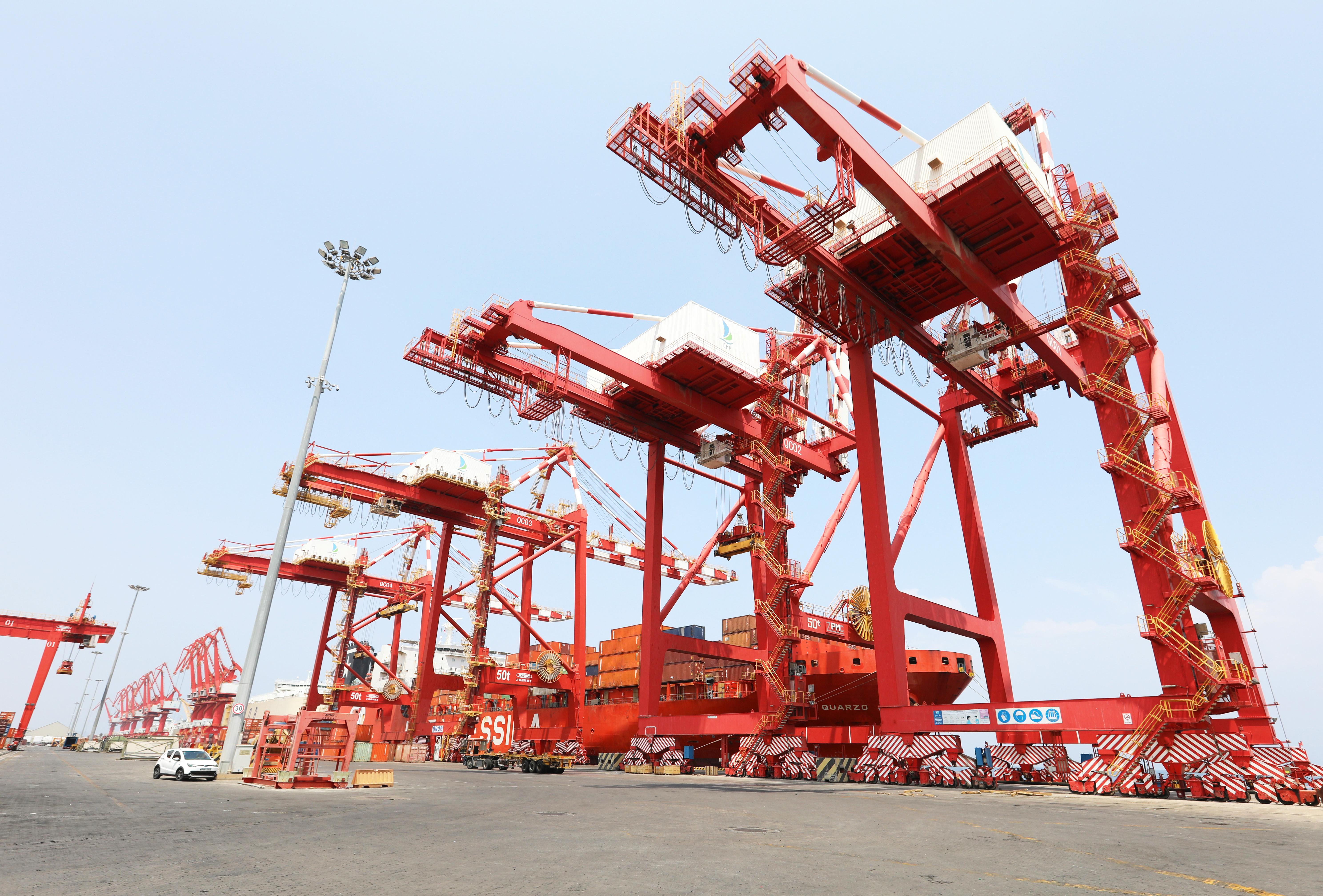China-Africa cooperation is about win-win partnerships
- By Tom Fowdy
 0 Comment(s)
0 Comment(s) Print
Print E-mail China.org.cn, December 20, 2022
E-mail China.org.cn, December 20, 2022
A view of the Doraleh Multi-Purpose Port constructed by China State Construction Engineering Corp in Djibouti City, capital of Djibouti, on Sept. 20, 2022. [Photo/Xinhua]
Last week the Biden administration hosted a summit of African heads of state in Washington, D.C. It is the first such meeting to be held since the Obama era, but looming over the decision to host such a gathering in the first place is one obvious strategic intention: The United States wants to contain the rise of China, and for that matter, only sees African nations as a means to doing so, as opposed to meeting with them on their own merits. It is little surprise on such a premise that U.S. Secretary of Defense Lloyd Austin proceeded to make baseless allegations that China's influence was trying to "destabilize" the continent.
Before the summit, the United States announced sanctions on the son of the President of Zimbabwe, a rude gesture that only demonstrates the bad faith and unhelpful reasons behind organizing the event. Not only does the United States fail to account for the actual needs and interests of African nations, it also fundamentally misunderstands and misrepresents the role which China plays in its longstanding multilateral relationship with the continent.
The development of China-Africa ties is rooted in Global South-South ties. Between 1950s-60s, China forged strong bonds with many African nations owing to a strikingly similar worldview of being "third-world" states recovering from colonialism, who were striving to find their own place in the world and resecure their national sovereignty against external interference. This helped bolster a firm relationship between China and African countries.
As such, China's development over the past few decades has allowed the evolution of relations with Africa from revolutionary ties toward a common theme of economic development. China, as a country which has ascended from being one of the world's poorest countries to the world's second largest economy, has provided inspiration and a model of development for African nations. It has also sought to bind the fundamental themes of global south solidarity to help promote similar development across the continent. This has been most evident through China's economic aid to infrastructure building, its financing of infrastructure through programs such as the Belt and Road Initiative, and its pursuance of high-level diplomacy through events such as the Forum on China-Africa Cooperation.
African nations have long perceived China as a preferential partner. This is because, while the Western nations view the continent as a "subordinate" to impose its rules, values, and interests on, China's diplomatic position instead regards African countries as equals and promotes fairer engagement. This is most evident via the fact that China guarantees respect for national sovereignty and promotes non-interference.
This comes in sharp contrast to the West's legacy in Africa, which is not only evident through imperialism itself, but also through how the West has continually leveraged development, investment, and financial assistance on the continent upon political and economic changes preferential to their own vision and interests. In the 1980s, the International Monetary Fund leveraged debt relief across Africa upon very painful changes to their own economies, which involved adapting neoliberal models. These policies were destructive to their own populations and exacerbated economic decline, poverty, and famine.
Despite the West continuing to misrepresent China's activities on the continent, the results of China's cooperation with African countries in the long term have been considerable. China has helped African countries to build railways, highways, bridges, ports, and large-scale power facilities over the past two decades, aiding the construction of medical facilities, sports venues, and schools, and creating more than 4.5 million jobs around Africa.
China's activities on the African continent should be understood as a multilateral form of "win-win" engagement, as opposed to one party imposing its will on the other. African countries actively seek China as a partner because it is able to provide development assistance and other support without the political conditions seen in Western capitals. This helps to create lasting diplomatic ties between the two regions.
If the United States really wants to bring the change Africans aspire to have, it needs to sincerely listen to the needs and concerns of African nations themselves instead of seeing the continent through the lens of its competition with a so-called rivalry.
Tom Fowdy is a British political and international relations analyst and a graduate of Durham and Oxford universities. For more information please visit:
http://www.ccgp-fushun.com/opinion/TomFowdy.htm
Opinion articles reflect the views of their authors, not necessarily those of China.org.cn.
If you would like to contribute, please contact us at opinion@china.org.cn.






